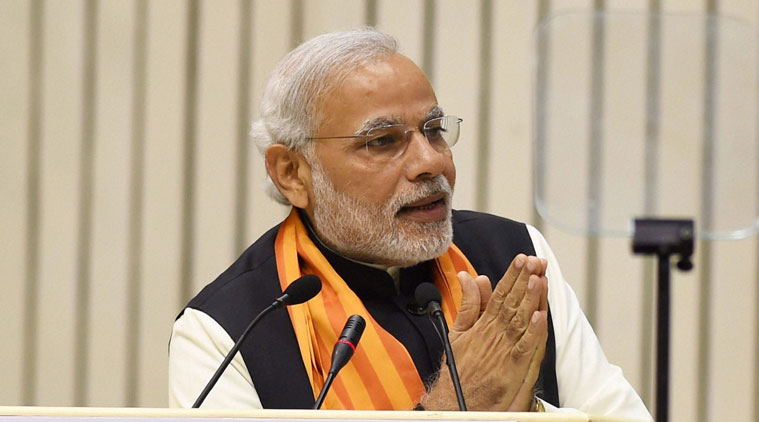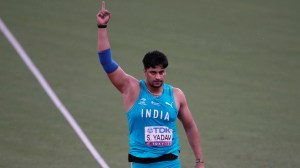Election results: Modi factor worked in Jharkhand, BJP emerges key player in J&K
Amit Shah promised good governance in Jharkhand and said that only BJP could change the state's fortunes.
 Election results: Prime Minister Narendra Modi
Election results: Prime Minister Narendra Modi
The BJP may have felt hemmed in by a united Opposition in Parliament, but the Modi factor continues to resonate across the states. The BJP emerged as the single largest player in Jharkhand and the second largest party in Jammu and Kashmir on Tuesday.
As the picture in the two states became clear, BJP president Amit Shah told reporters at a specially called media conference, “I want to congratulate Prime Minister Narendra Modi, because his government’s work and people’s love for him is a big reason for our victory… I believe that voters have endorsed Modi’s style of governance.”
Senior party leaders said the victory is a clear vote for Modi. “Look at the case of Jharkhand. The party has ruled the state for the longest period since its formation in 2000. Had it not been for Modi, we could not have gone to polls with promises of good governance and development,” said a senior party leader.
Since coming to power at the Centre earlier this year, the BJP has won all the state elections.
Modi himself campaigned across J&K — a top priority for the BJP, which is keen to ensure closer integration of the trouble-torn state with the rest of the country — and Jharkhand. The emergence of the party as a serious player in J&K will add one more feather to the caps of both Modi and Shah. “We are now a relevant party in J&K,” said a visibly delighted Shah.
For the BJP, which was obviously disappointed with the outcome of the winter session which ended on Tuesday — facing a united Opposition, the government had to defer many of its key legislative agenda — the results have come as a reason to reassure itself. “The poll verdict is a lesson for those who oppose our government’s agenda of development and change,” said Shah, taking a swipe at the Opposition parties who have tried to corner the government in Parliament over the conversion issue.
Although its Mission-44 in J&K did not succeed, the BJP got 25 seats, just three less than the People’s Democratic Party — the main Opposition party in the outgoing Assembly — and also won the highest vote share — 23 per cent as compared to the PDP’s 22.7 per cent. In Jharkhand, where the BJP won 37 seats, its vote share was 31.3 per cent votes, while the JMM’s was 20.5 per cent.
“The BJP has increased its tally from 18 in 2009 to 41 (with allies) in Jharkhand. In J&K, our seats have increased from 11 in 2008 to 25. We have received the maximum percentage of votes in the state,” said Shah.
Senior BJP ministers believe the party’s victory in Jharkhand would also give a fresh impetus to the government’s economic agenda, as the party’s own government can expedite mining projects in the mineral-rich state.
However, Tuesday’s election results may also strengthen the bonding between the non-NDA parties, which was often visible in Parliament, especially in the Rajya Sabha.
Photos



- 01
- 02
- 03
- 04
- 05




























